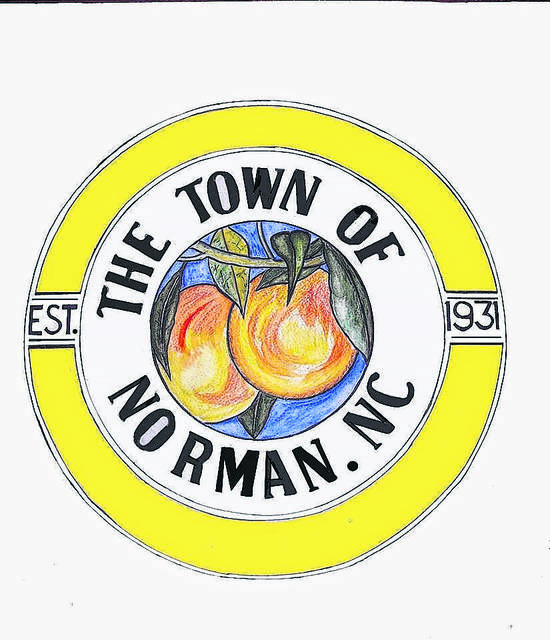Town must find a way to tax, or risk dissolution
NORMAN — There are two potential paths forward for Norman, barring further action from elected officials: suspend the town’s charter and work with legislators to create a plan that will remedy its financial woes, or dissolve the charter and figure out what to do with Norman’s assets.
All of Richmond County’s municipalities were strained financially in the wake of the Board of Commissioners’ decision to change the sales tax revenue distribution method from per capita to ad valorem, but none took as big of a hit as Norman. The town of roughly 130 people lost all of its sales tax revenue intake because it doesn’t levy taxes on its residents, and ad valorem revenue is dispersed based on property taxes levied during the previous fiscal year.
Town Council has been searching for new ways to generate income, but Norman’s has been in somewhat of a holding pattern since Council met in late August with representatives of the Lumber River Council of Governments (LRCOG). Both sides in that meeting agreed that Norman should seek the suspension of its charter. Norman’s quest to find legal representation on its shoestring budget led to a consultation with Sen. Tom McInnis.
During Monday’s regular Town Council meeting, Town Clerk Glenda McInnis provided an update on where Norman is in that process.
“We spoke today with (officials in) Raleigh and they didn’t really give us more than what we already knew,” Glenda McInnis said. “They didn’t give us any encouragement or answers. They just said we need to talk among the Council and then talk among the citizens of Norman if we can get some more to come to the meetings.”
“We need the people of the town to know what is happening and what is going to happen,” Mayor Pro Tem Stephen Cranford added. “Because when the lights go out, that’s when they’ll start coming out.”
Cranford was referring to street lights, the only service Norman offers its residents.
Glenda McInnis said that, if Norman chooses to suspend its charter, it could be a while before that process moves forward. According to information provided by LRCOG, there aren’t set procedures in state law for charter suspensions — but, based on past suspensions, the process would likely involve Norman’s legislators in Raleigh working with the Department of the State Treasurer to develop a plan for the town that would be voted on by the General Assembly.
“Nothing can be done until March or April, for Sen. McInnis to go to the legislature,” Glenda McInnis said.
For now, City Council will continue to ponder its plan and hope that changes are made by the Commissioners — something that could happen after the election this November. Council heard from three candidates for the Richmond County Board of Commissioners during Monday’s meeting.
Candidates Jeff Smart and Dewey Brower attended the meeting. Candidate Toni Maples planned on attending the meeting, but she told Council beforehand that she had to cancel because she was quarantining after being exposed to someone who tested positive for COVID-19. Maples instead submitted a letter in which she said she is in the process of applying for a Rural Development grant that will help Richmond County’s smallest communities — Ellerbe, Dobbins Heights, Hoffman and Norman.
“I’m looking forward to being able to serve you all, Lord willing,” Maples wrote.
Both Smart and Brower offered encouragement to the town’s leaders and spoke about how they’ll help Norman through its predicament if they are elected.
“As an outsider looking in right now, which is what I am, I’ve seen what the first two months (of sales tax revenue totals) were, what the county’s brought in,” Smart said. “And it’s way over the estimate that the commissioners voted on. … There’s going to be extra money there. I’ve heard what Ben Moss has said in the paper as well, and I’m kind of on the same track. I think there might be some immediate relief there.”
In May, Moss — a current Commissioner and a candidate for the N.C. House of Representatives District 66 seat — said that if the net benefit to the county from changing the sales tax distribution method exceeded the initial projection put forward by County Manager Bryan Land, the excess revenue should be dispersed to the municipalities. Land projected that the county’s sales tax revenue would increase by $675,000 under ad valorem. According to Department of Revenue reports, the increase between May 2019 and May 2020 sales tax distributions and July 2019 and July 2020 distributions is already $549,934.
“I’m the type of person that likes to read and see what’s going on, and get with the different towns so we can see what we can do to help solve the problem,” Brower said while talking about getting Norman “back on track.”
“I’m sure something can be done,” Brower added. “Just keep trying to find the right people that are open-minded, that will listen and do what they need to.”
Reach Brandon Tester at btester@www.yourdailyjournal.com or 910-817-2671. Follow him on Twitter @BrandonTester.




